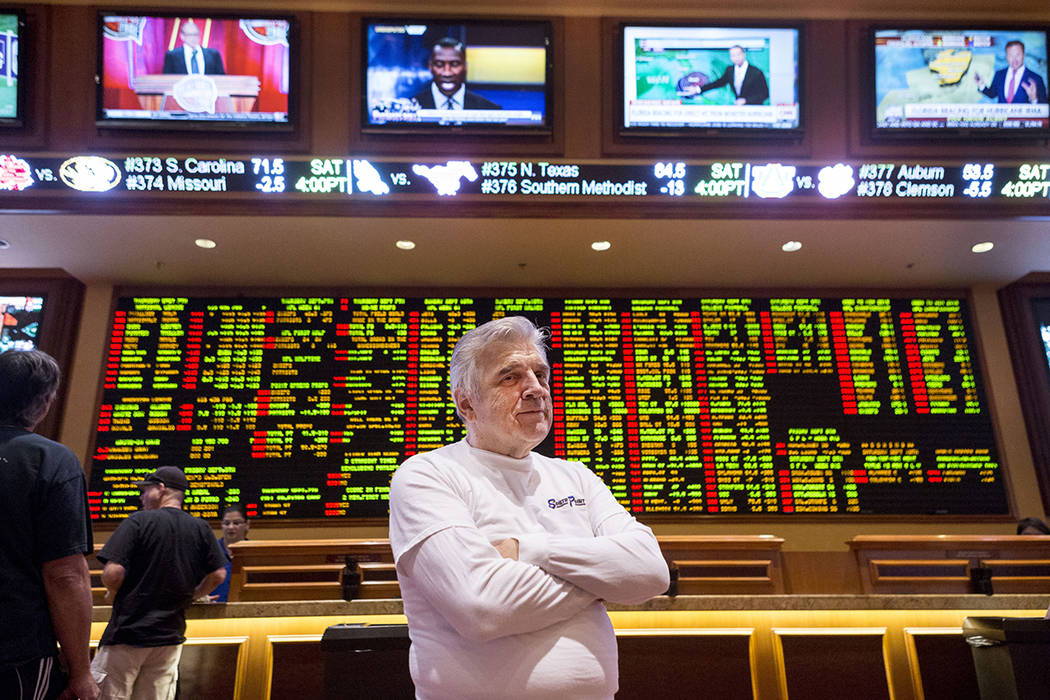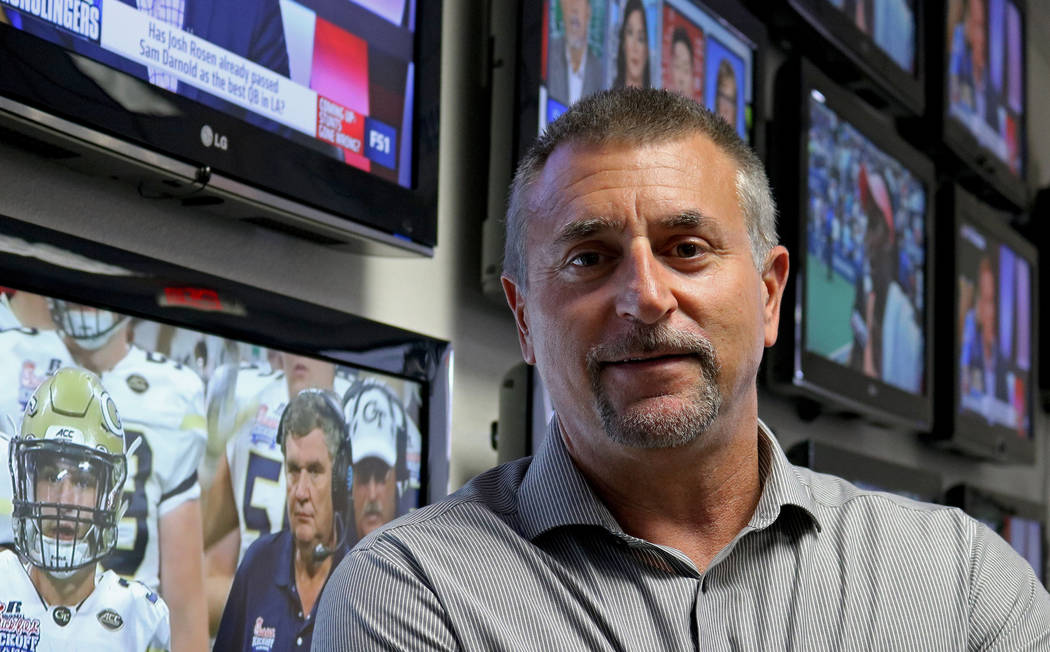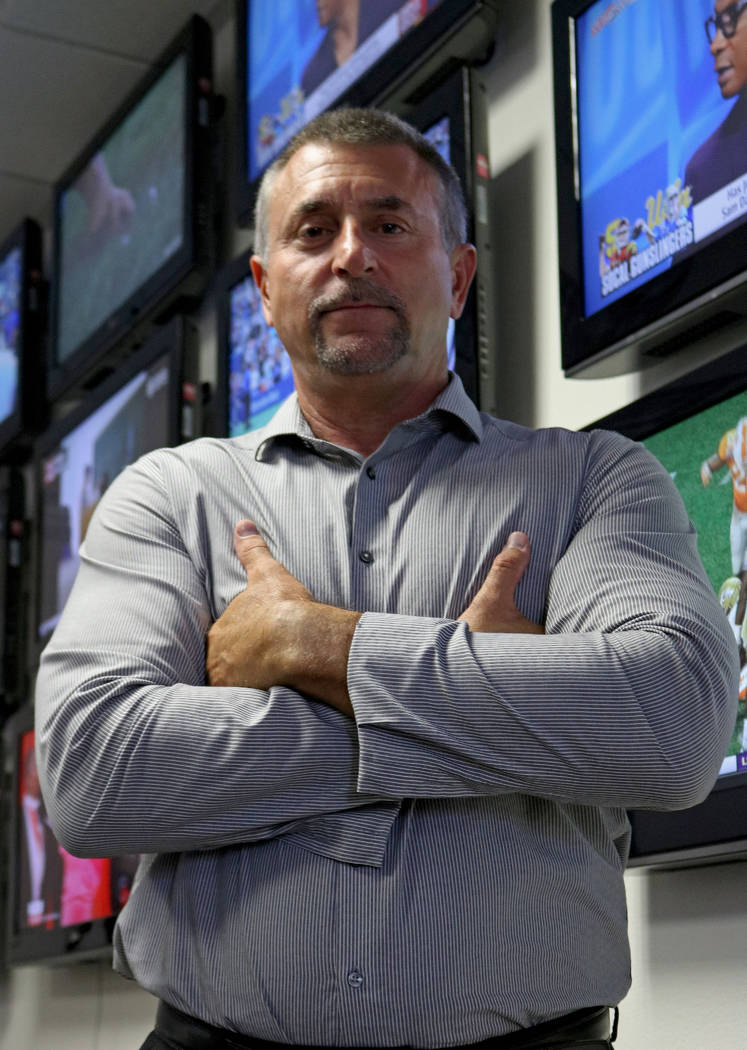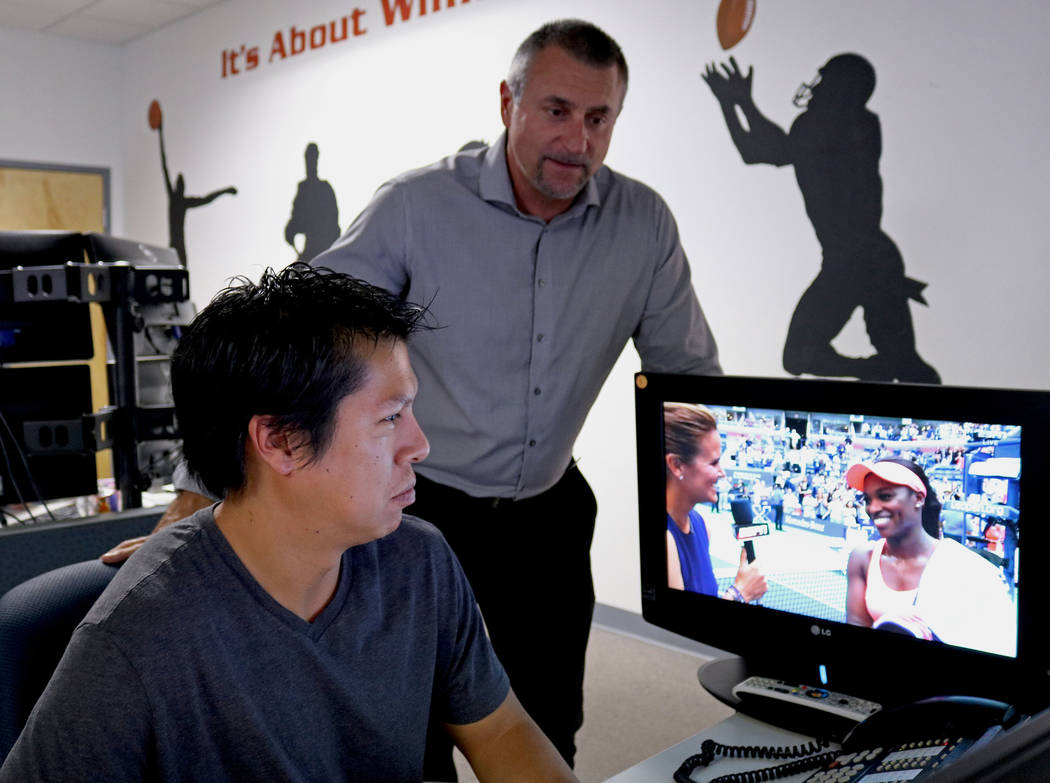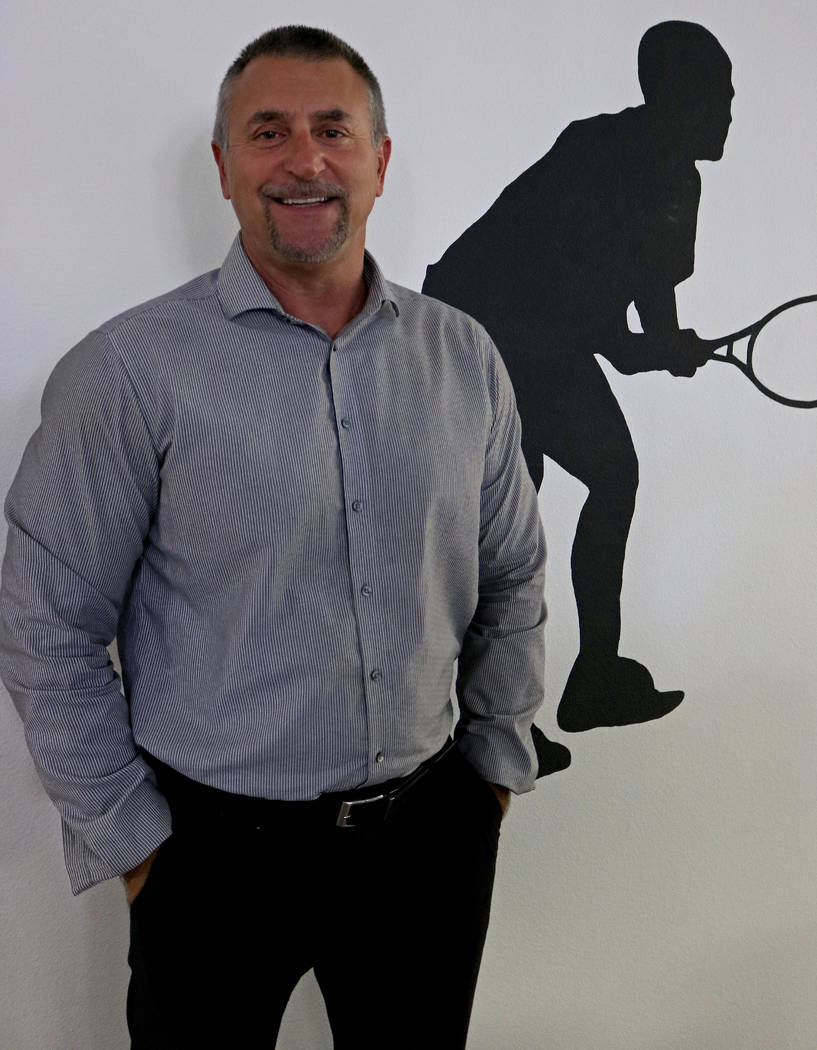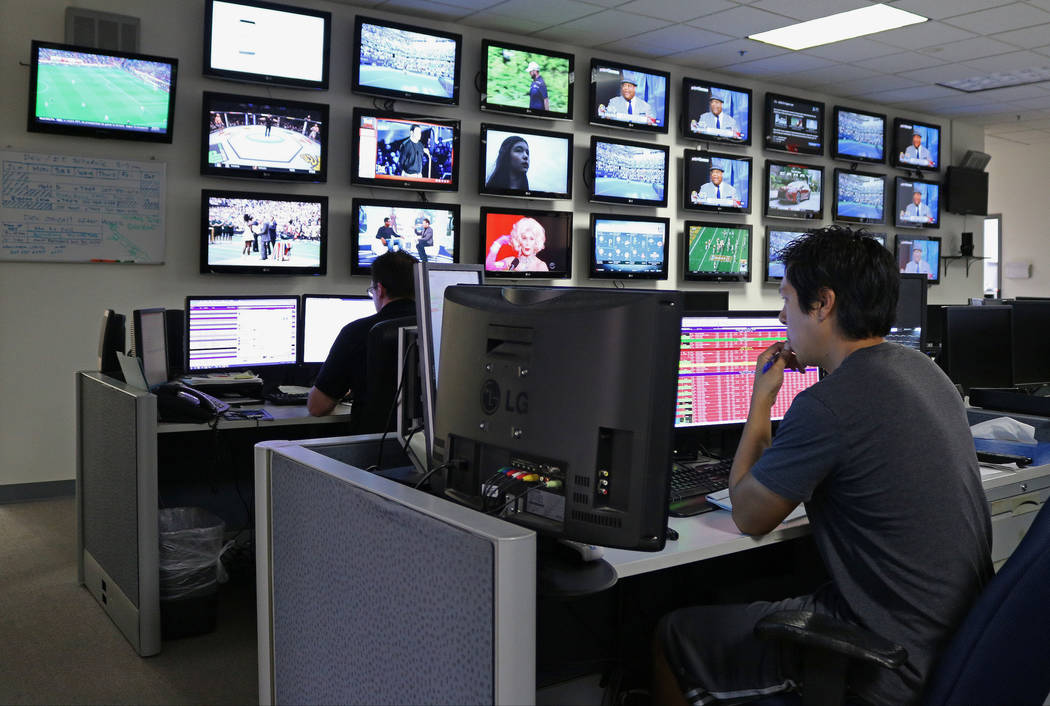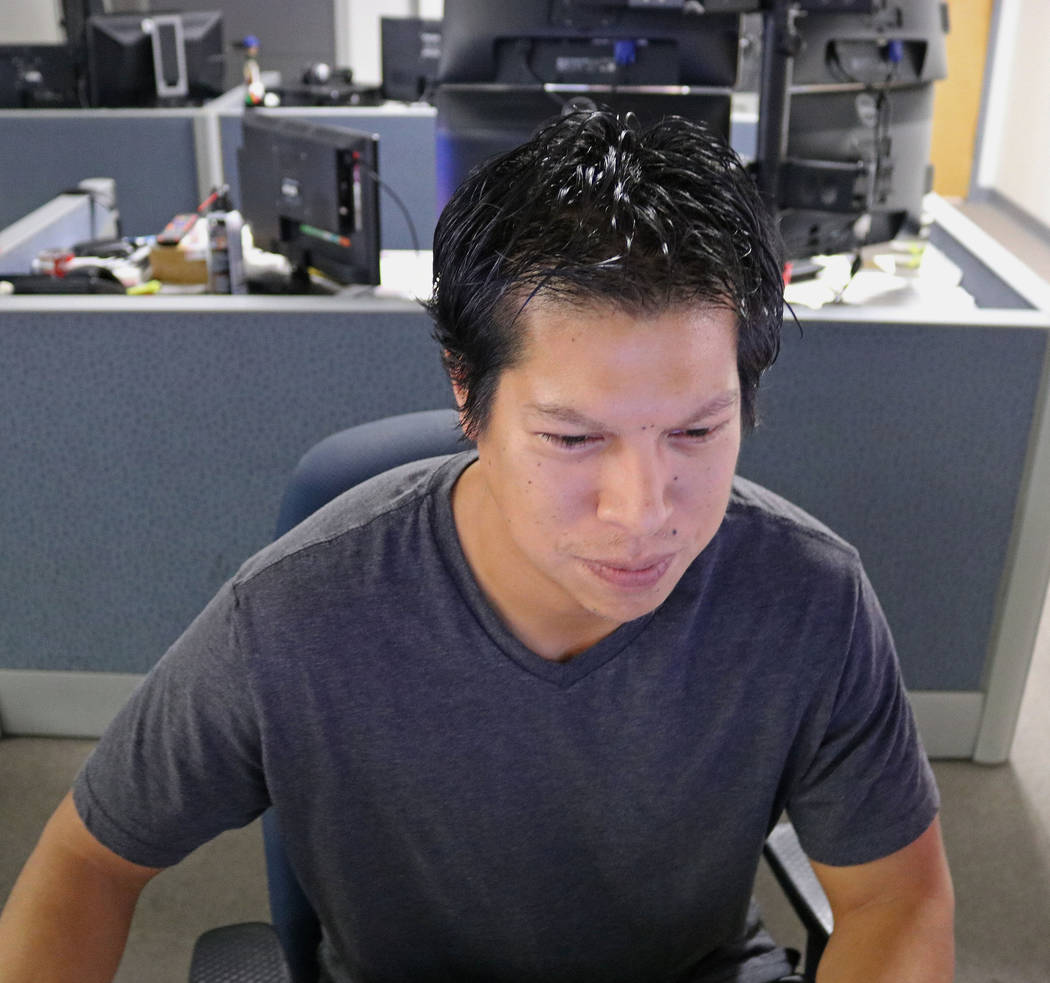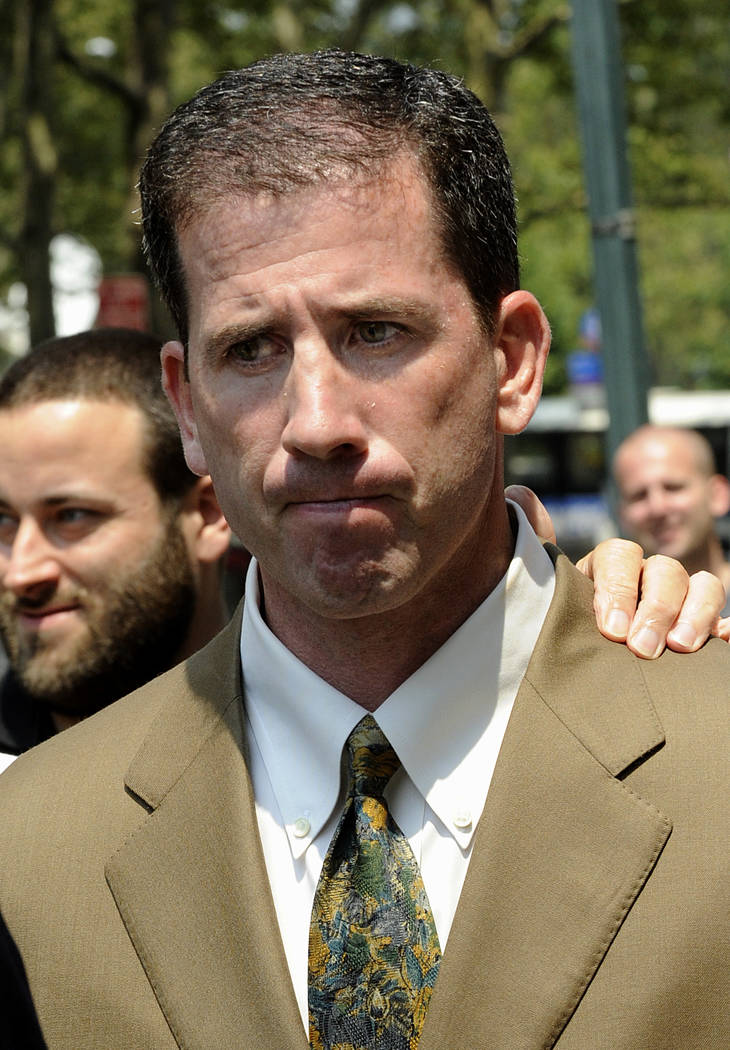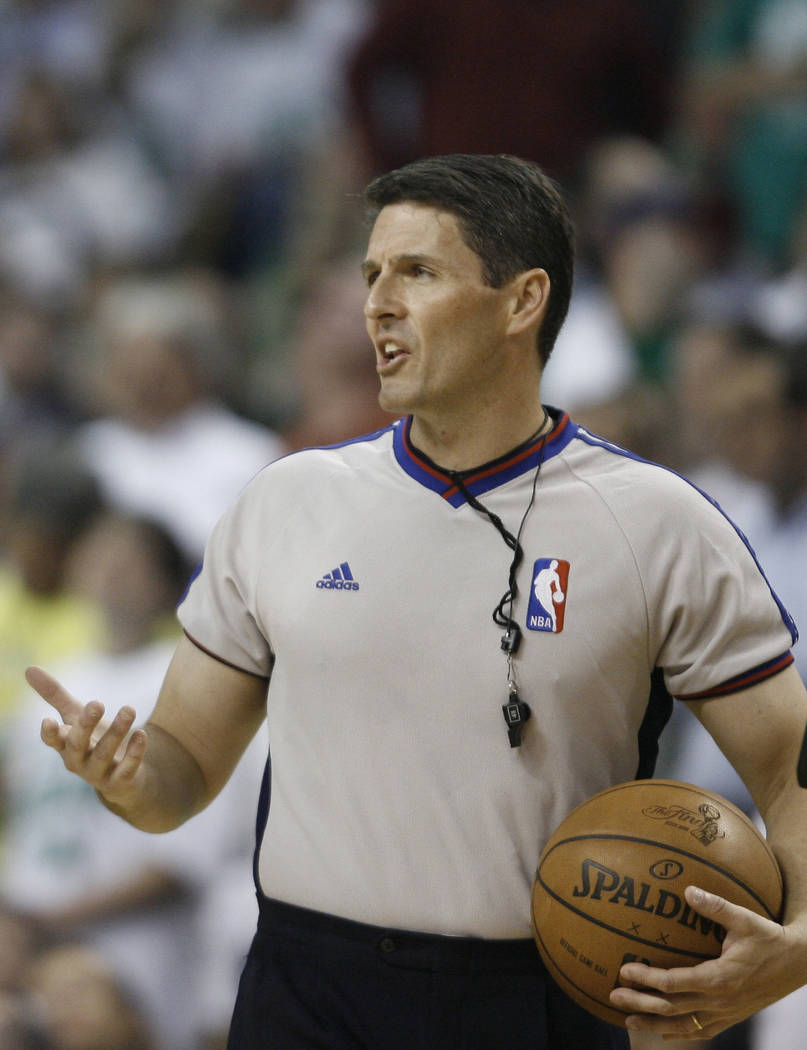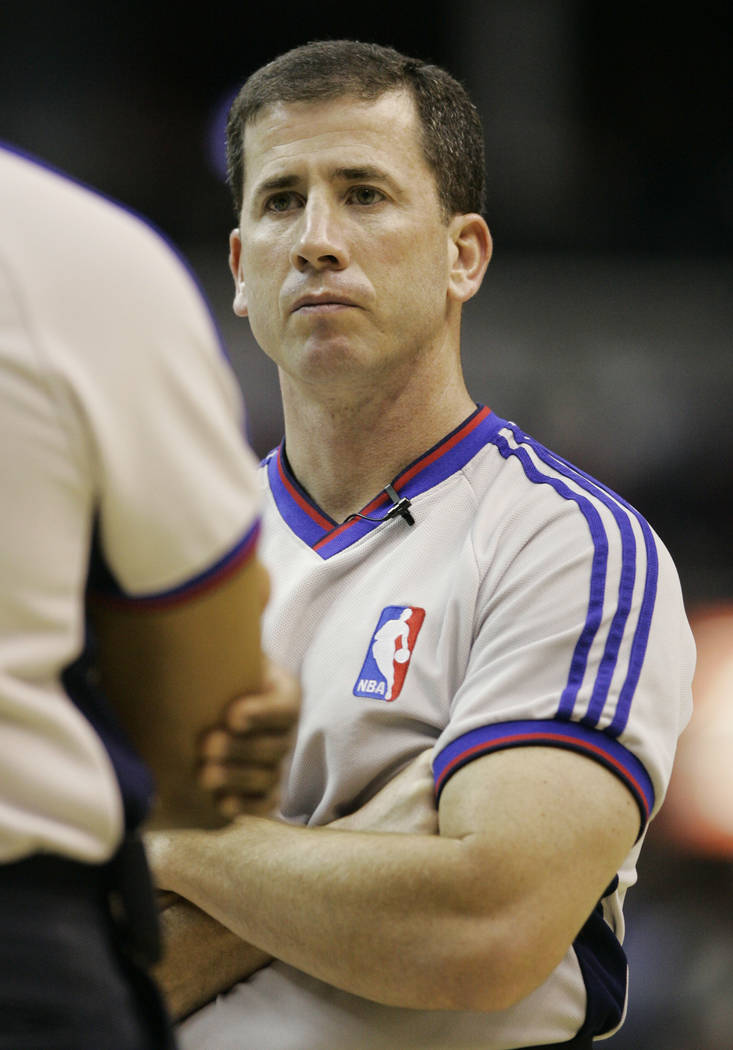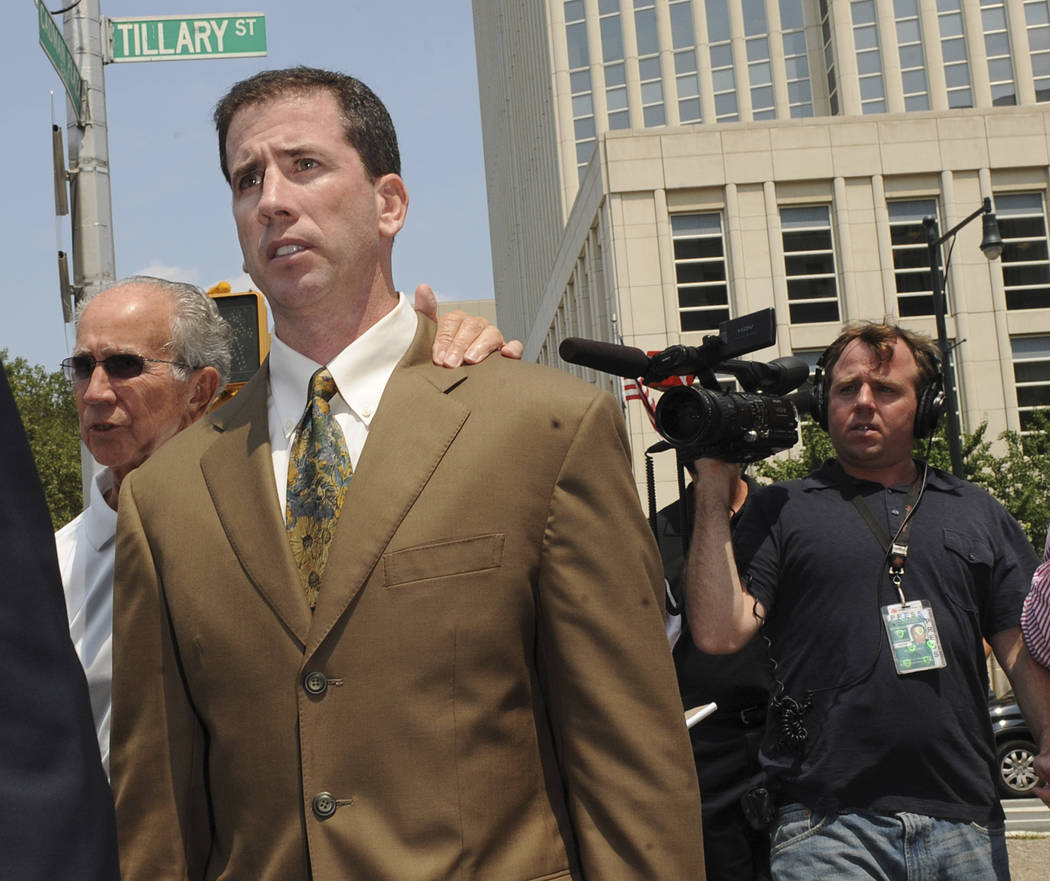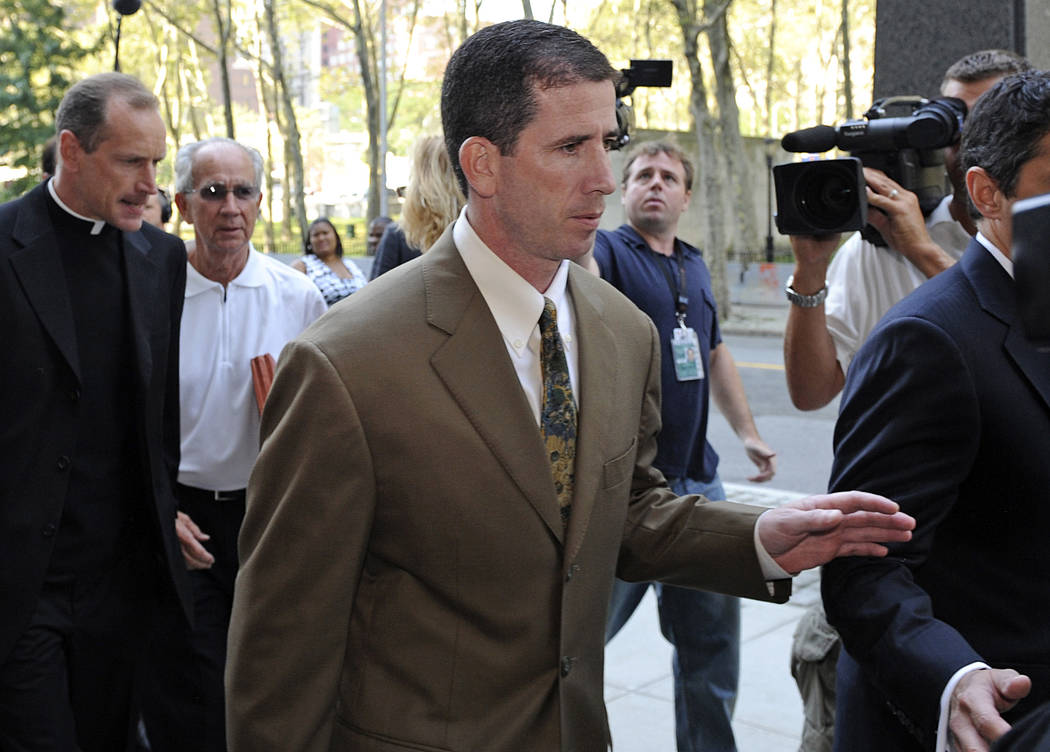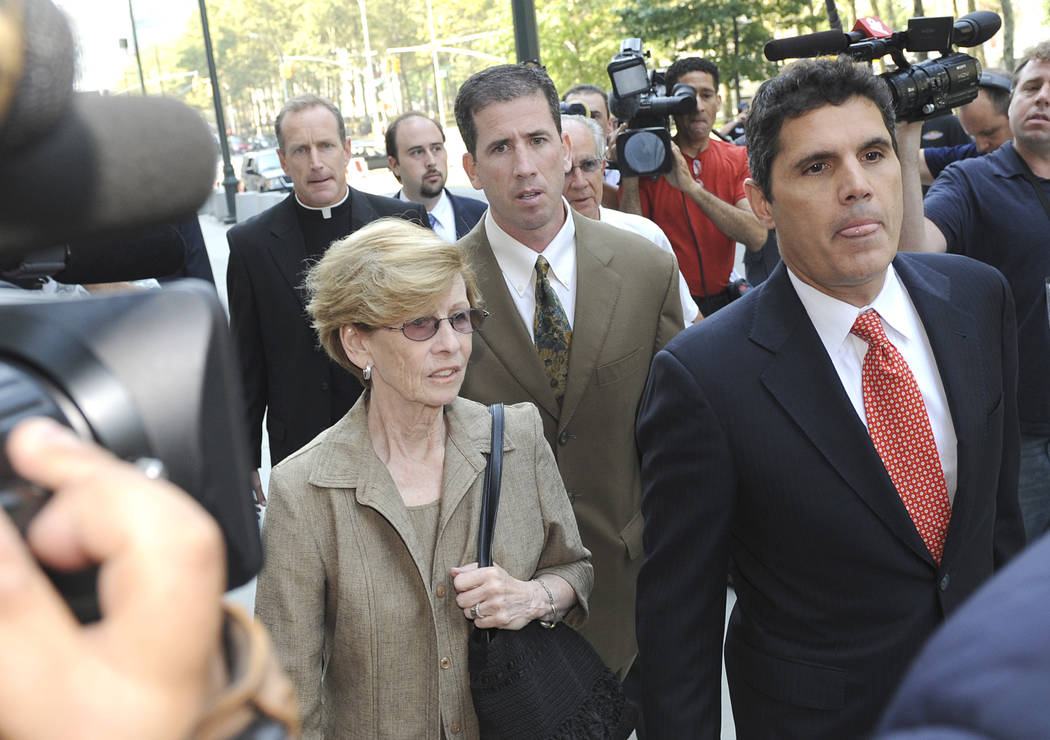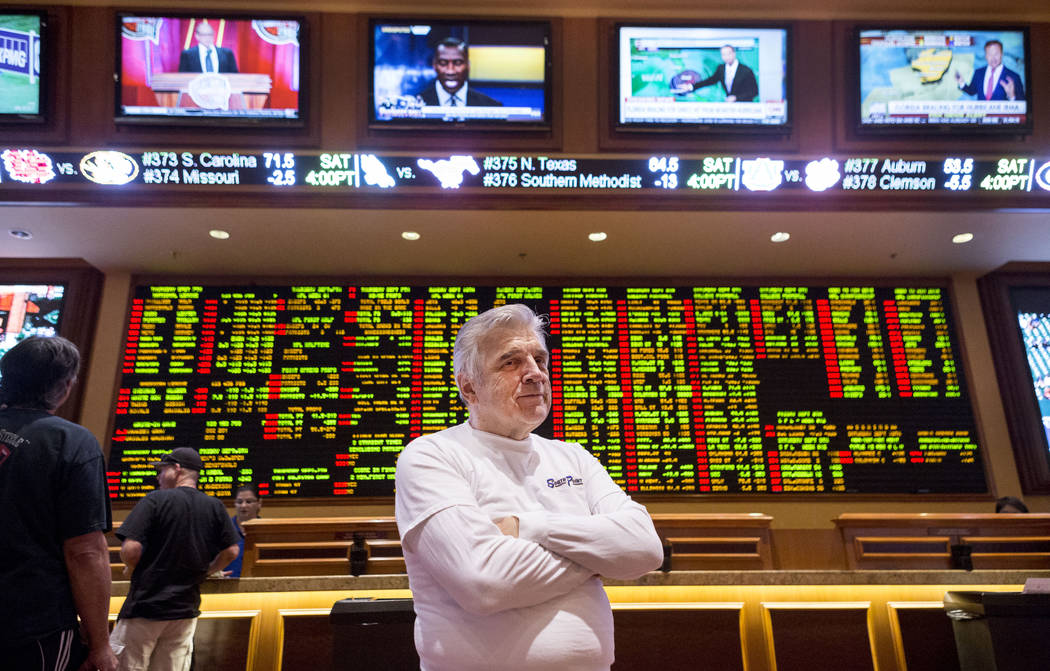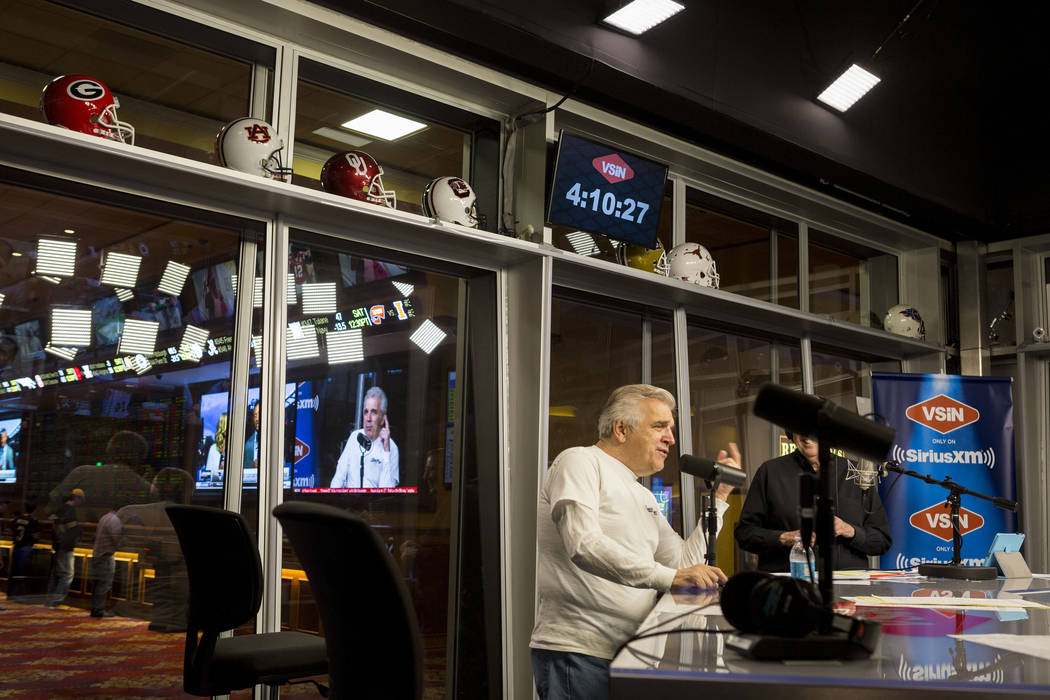Las Vegas bookmakers know a fix when they see one
Las Vegas bookmakers had just alerted authorities to a point-shaving scandal at Arizona State University when then-Sun Devils basketball coach Bill Frieder walked into The Mirage to bet on horse racing.
Jimmy Vaccaro, the then-Mirage Resorts sports book director, said seeing Frieder, known as a sharp gambler, in his book almost gave him a heart attack.
“I went out there and said, ‘Bill, what are you doing?’ He looked at me like he was clueless and said, ‘Jimmy, I’m betting horses.’ I said, ‘They think your game was fixed yesterday.’ He gave me a puzzled look and said, ‘But we won by 18 points,’” Vaccaro said. “I asked him nicely. I said, ‘Bill, you’re a good guy, but go play your horses somewhere else.’”
Frieder, who couldn’t be reached for comment, wasn’t involved in the 1994 scheme to fix four games, a scheme that ultimately cost him his job. Nor was he aware that Vaccaro had notified the Nevada Gaming Control Board the previous day, March 5, about suspicious betting activity in Arizona State’s game against Washington.
The point-shaving scandal was one of several uncovered over the years with the help of Las Vegas bookmakers, who are on the same side as the NCAA and major pro sports leagues when it comes to wanting to protect the integrity of the games.
“If there is a crooked game, it’s the bookmaker that gets hurt,” Westgate sports book director Jay Kornegay said, with the NFL entering its opening weekend of the season Sunday. “If we’re taking bets on something that isn’t a fair and true contest, that’s a problem for us as well as the leagues.”
Vaccaro said Arizona State-Washington, an innocuous Saturday afternoon game that normally would attract about $40,000 in wagers, had generated a betting handle of more than $525,000 at Mirage properties alone. The FBI estimated that $900,000 was wagered on the game overall, with heavy Huskies action driving the Sun Devils from 11-point favorites to 3-point favorites.
“It was obvious something was up,” said Vaccaro, now a South Point oddsmaker. “Don’t think they’re all geniuses. Anybody could’ve spotted that one.”
The sea of Arizona State students betting duffel bags full of money against their own team was hard to miss.
“There were a bunch of kids in Arizona State shirts all over town betting on Washington,” MGM Resorts sports book director Jay Rood said.
Bettors cashed in on the first three games that were fixed by Sun Devils players Stevin “Hedake” Smith and Isaac Burton. But they lost big on Washington. Despite missing its first 14 shots, Arizona State led 25-23 at halftime and pulled away in the second half en route to a 73-55 win and cover.
A made-for-TV movie about the scandal — “Big Shot: Confessions of a Campus Bookie” — depicted Frieder telling his team at halftime that the Pac-10 had been notified by Las Vegas casinos about a possible fix.
Integrity issues
NFL commissioner Roger Goodell still hasn’t embraced the fact that legal bookmakers, as Wynn sports book director Johnny Avello said, “have always been a good watchdog.”
Even after NFL owners unanimously approved the Oakland Raiders’ relocation to the world’s gambling capital in Las Vegas, Goodell said the league “still strongly oppose legalized sports gambling.”
“The integrity of our game is No. 1,” he said. “We will not compromise on that.”
“The integrity of our game is No. 1,” he said. “We will not compromise on that.”
Leagues long have played the integrity card to make their case against gambling.
“It’s what they’ve been hiding behind for 1,000 years,” Vaccaro said. “Naturally, we want games to be on the up and up.”
With the U.S. Supreme Court set to hear a case this fall that could pave the way for nationwide legal sports betting, the leagues have started to pivot on the issue.
NBA commissioner Adam Silver advocated expanding legal sports gambling in a 2014 op-ed piece in The New York Times, and MLB commissioner Rob Manfred also has begun to embrace the prospect that baseball has staunchly opposed for decades.
Also, neither the NFL nor the NHL has requested a betting ban on Raiders’ and Golden Knights’ games in Nevada.
“We’re a small part of betting compared to football and basketball,” NHL commissioner Gary Bettman said in July. “I don’t worry about fixing games.”
Spotting a fix
While the NCAA and NFL remain publicly opposed to expanding legal sports betting, former Las Vegas Sports Consultants owner Kenny White said he thinks that is the best way to curtail point shaving and game fixing.
“The only way to wipe it out a little bit is by legalizing gambling across the United States. That would make it easier to track,” White said. “If you’re an illegal bookie, you’re the last guy who wants to make a phone call to report something (to the police).
“Usually, the illegal bookie figures it out and ends up betting it himself. That’s what happened with the Arizona State (scandal) and the illegal bookie out of Toledo that was fixing the game.”
White, vice president of data integrity for Don Best, a sports information website, said he first alerted the NCAA to what turned out to be a football and basketball point-shaving scandal at Toledo from 2004 to 2006.
After some of White’s bigger clients at LVSC, an oddsmaking firm, complained in 2005 that his lines on the Mid-American Conference were terrible, he dedicated a person to study the league to sharpen the odds. But the books kept losing on MAC games.
“I went back the previous year or two and started to analyze every team in the league and pinpointed Toledo. That was the one team where the bettors were never wrong,” White said. “When they bet on them and the line moved with them, Toledo covered easily. When they bet against them, they had no shot to win.
“I reported it to the NCAA. I said, ‘I think there’s point shaving and game fixing going on with Toledo.’ They said, ‘That’s a pretty bold claim. We’ll get back to you.’”
White said the NCAA reported back to him that they had met with the Toledo school president and athletic director and found no evidence of wrongdoing.
“I said, ‘I definitely feel different. I see the betting patterns,’” he said.
White was at a sports bar in 2007 when he saw the news that Rockets running back Harvey “Scooter” McDougle had been arrested and charged in what the FBI said was a point-shaving scheme.
“I almost fell off my stool,” White said. “The NCAA called me the next day and said, ‘You’re smarter than we are. You’re hired. We want you to monitor all our conferences.’”
White also monitored games for the NFL and NHL while at LVSC, which was bought by CG Technology, and still provides fraud protection for professional and amateur sports leagues. White said he can’t reveal his current clients.
“I put in reports on each and every game and how much line movement there was,” he said.
With irregular betting patterns, another red flag for bookmakers is when unfamiliar clientele want to place huge wagers — as was the case in the Arizona State scandal.
“When college students they’d never seen before were coming in and taking bad numbers for the limit, they knew right away it was fixed,” White said.
The same scenario played out in 1985, when Vaccaro helped uncover the Tulane basketball point-shaving scandal involving former NBA player John “Hot Rod” Williams.
“They came to the Barbary Coast and tried to bet $30,000 on a college game. I told them we took $3,000,” Vaccaro said. “One bet $3,000, and the second kid wanted to bet $10,000, but the line had changed. They had no idea what 11-to (make)-10 was.
“I did inform (owner) Michael Gaughan, and they advised the (Gaming Control Board). Within a month, Tulane questioned these kids and punished these kids.”
There also are more mechanisms in place today to track bettors and their money in the event of any suspicious activity.
“Tracking money in this day and age is a lot more elaborate than at any time,” longtime Las Vegas bookmaker Vinnie Magliulo said. “There are reporting requirements. Over a certain threshold, people have to produce identification. The beauty of our industry is it’s fully transparent, regulated, licensed, taxed and has tremendous oversight.
“The other thing that makes it more difficult today (to fix games) is social media. There are no secrets.”
If authorities wanted to investigate a suspicious wager, Kornegay said, “We’d know who bet it, at what time, and we’d probably have a picture of them, not to mention have their information, which you can’t get from an underground system.”
Fixing in minor sports
While point-shaving scandals in the four major pro sports in the U.S. have been rare, there have been countless confirmed fixes over the years in boxing and horse racing and hundreds of fixed soccer and tennis matches in recent years, mostly in Europe.
In fact, three tennis matches at Wimbledon in July came under investigation by the Tennis Integrity Unit because of suspicious betting patterns. So did former world No. 13 Alexandr Dolgopolov’s straight-sets loss to No. 114 Thiago Monteiro on Aug. 20 in North Carolina. Heavy action on the underdog moved Dolgopolov from about a 3-1 favorite to a 2-1 underdog.
“The tennis world is so corrupt. It’s the easiest thing to fix,” White said. “It’s one on one, and you don’t even have to look bad in that sport. You can just quit after two games.”
“The tennis world is so corrupt. It’s the easiest thing to fix,” White said. “It’s one on one, and you don’t even have to look bad in that sport. You can just quit after two games.”
White said it makes no sense for highly paid players in the NFL, NBA, NHL or MLB to engage in game fixing. But he thinks officials — such as former NBA referee Tim Donaghy, who served 15 months in prison for betting on games and providing inside information to gamblers from 2005 to 2007 — are vulnerable.
“It could happen by an official or umpire or referee, but players make so much money and have so many incentives where by playing well they can make more money,” White said. “Salaries are so high in the NBA now, you could never get an NBA guy to fix a game. But you could get an NBA official like Donaghy because salaries are not that great.
“College is the highest risk because there’s no salaries, and referees are paid far less than professional officials are. That’s why we’ve seen more games fixed in college sports.”
Vaccaro is convinced that a major event such as a Super Bowl, which generates more than $100 million in wagers in Nevada, never will be fixed.
“What the heck are you going to offer Tom Brady? $10 million?” Vaccaro said. “He’d tell you to get lost.”
Contact reporter Todd Dewey at tdewey@reviewjournal.com or 702-383-0354. Follow @tdewey33 on Twitter.
The fix was in
Biggest match fixing and point-shaving scandals in U.S. sports history:
1919 Chicago Black Sox
Eight Chicago White Sox players, including Shoeless Joe Jackson, were banned from baseball for life for conspiring with gamblers to throw the 1919 World Series in exchange for cash.
1951 college basketball point-shaving scandal
In the biggest betting scandal in college basketball history, 32 players were arrested and admitted to taking bribes from 1947 to 1950 to fix 86 games. The scandal involved City College of New York, which won the NCAA and National Invitation Tournament titles in 1950, as well as New York University, Long Island University, Manhattan College, Bradley, Toledo and Kentucky, which suspended its basketball program for the 1952-53 season.
1978 Boston College basketball point-shaving scandal
Mobster Henry Hill, the main character in the Martin Scorcese film "Goodfellas," and twice-convicted sports fixer Richard "The Fixer" Perry conspired with three Boston College players to fix nine games during the 1978-79 season. Eagles player Rick Kuhn received a 10-year prison sentence for his role in the scheme but served only 28 months.
1985 Tulane basketball point-shaving scandal
Former NBA player John "Hot Rod" Williams was one of five Tulane players who was charged with shaving points in two games in exchange for cash and cocaine. The scandal, which was uncovered with the help of Las Vegas bookmakers, ended with the school dropping its basketball program.
1994 Arizona State basketball point-shaving scandal
Sun Devils players Stevin "Hedake" Smith and Isaac Burton conspired with gamblers to fix four games in the 1993-94 season. The scheme was uncovered with the help of Las Vegas bookmakers, who alerted authorities to suspicious betting patterns after taking an estimated $900,000 in wagers on an Arizona State-Washington game that would typically generate a betting handle of about $40,000.
2004-06 Toledo football and basketball point-shaving scandal
In the first major gambling case involving two sports on a college campus, Rockets football and basketball players conspired with gamblers to shave points in games from 2004 to 2006. Kenny White, who owned the Las Vegas Sports Consultants oddsmaking firm at the time, first alerted the NCAA to suspicions of point shaving at Toledo after noticing irregular betting patterns on its games.
NBA referee Tim Donaghy
Veteran NBA official Tim Donaghy was sentenced to 15 months in prison in 2007 for betting on NBA games he officiated, making calls that affected the point spreads and totals in those games, and providing inside information to gamblers.



